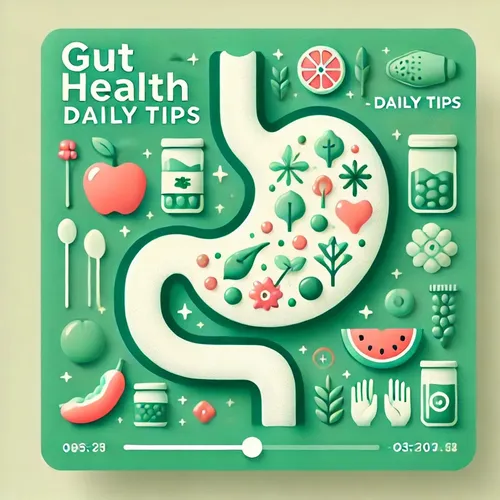Unlock Your Gut's Potential: Proven Strategies for Optimal Digestive Health
- Author
- Quiet. Please
- Published
- Sun 31 Aug 2025
- Episode Link
- https://www.spreaker.com/episode/unlock-your-gut-s-potential-proven-strategies-for-optimal-digestive-health--67566165
Gut health has become a focal point in discussions about overall well-being, and for good reason. The gut, often referred to as the "second brain," houses a complex ecosystem of trillions of microorganisms. These microbes play a pivotal role not only in digestion but also in immune function, mental health, and chronic disease prevention. Here are some ways to improve and maintain a healthy gut.
Diet is a cornerstone of gut health. Aim to include a variety of fiber-rich foods in your meals. Dietary fibers are prebiotics, which serve as food for beneficial gut bacteria. Foods like fruits, vegetables, legumes, and whole grains can help increase your fiber intake. Among these, fermented foods like yogurt, kefir, sauerkraut, and kimchi are particularly beneficial. They contain probiotics, which are live bacteria that confer health benefits by enhancing the gut microbiome.
Hydration is often overlooked but is crucial for facilitating the digestion and absorption processes in the gut. Water helps dissolve nutrients and waste products, making them easier to transport. Ensuring adequate fluid intake can also prevent constipation, promoting a smoother digestive process.
Another potential avenue for enhancing gut health is the incorporation of polyphenol-rich foods. Polyphenols, found in foods such as berries, tea, dark chocolate, and wine, have been shown to fuel beneficial gut bacteria. They possess antioxidant properties that can reduce inflammation and provide various health benefits, extending their positive effects beyond the gut.
Exercise also contributes significantly to a healthy gut microbiome. Regular physical activity can increase the diversity of gut bacteria, which is often linked to better health outcomes. Aim for at least 30 minutes of moderate exercise at least five times a week. Activities like walking, cycling, or even yoga can be effective in improving the composition of gut bacteria.
Stress management plays a significant role in digestive health. Chronic stress can negatively impact gut bacteria, leading to issues such as bloating and discomfort. Techniques like meditation, deep breathing exercises, and mindfulness can help mitigate stress levels, ultimately benefiting your gut.
Lastly, avoid unnecessary use of antibiotics as much as possible. While antibiotics are essential for combating bacterial infections, they can also disrupt the balance of gut bacteria by killing both harmful and beneficial microorganisms. If antibiotics are prescribed, consider discussing options for probiotic supplementation with your healthcare provider to help restore balance.
In summary, nurturing your gut involves a multifaceted approach encompassing diet, hydration, exercise, stress management, and cautious use of medications. By integrating these practices into your daily routine, you can promote a healthier gut, which in turn supports overall health and wellness.
For more http://www.quietplease.ai
Get the best deals https://amzn.to/3ODvOta
